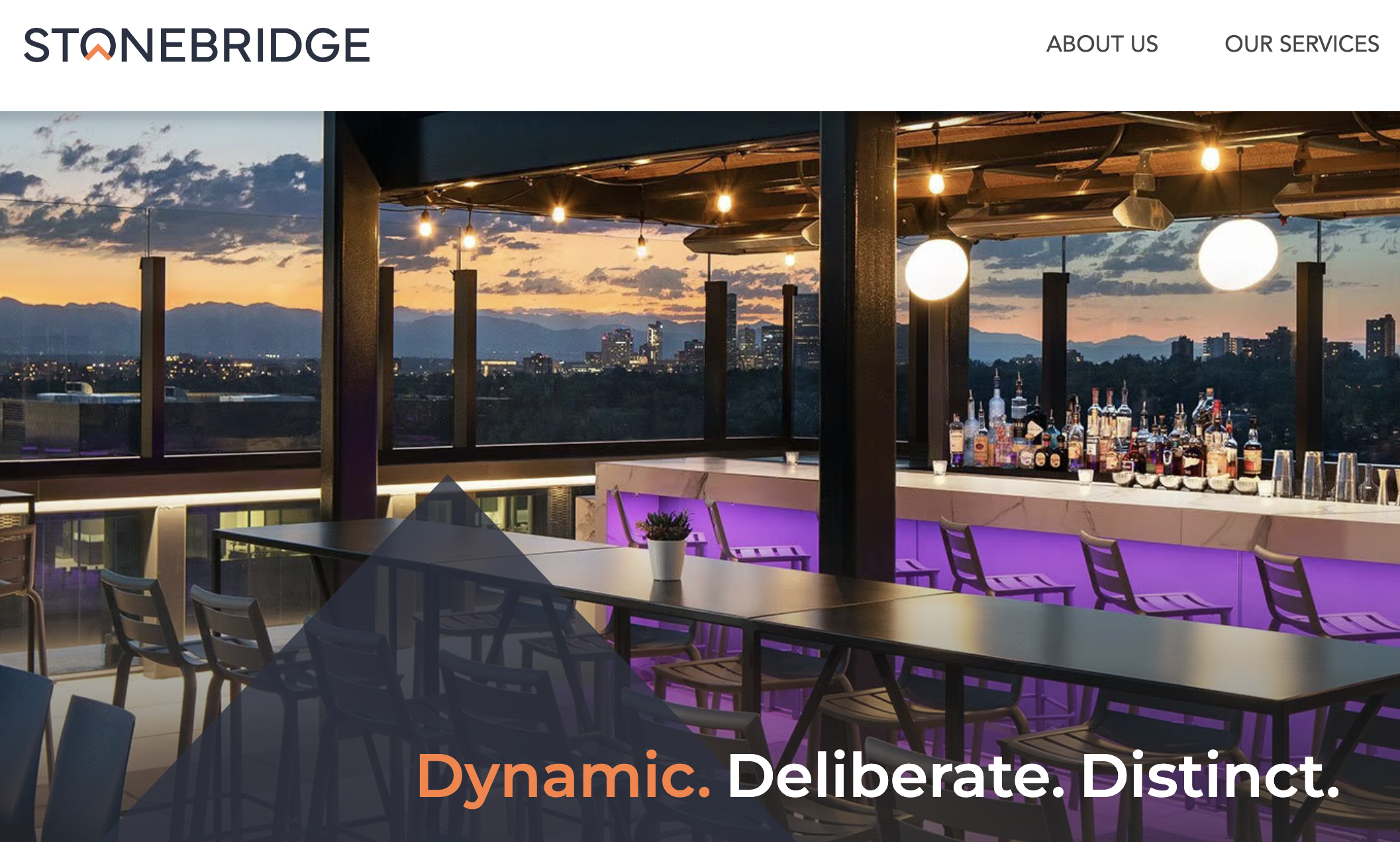PROJECT TYPE
Web Application
TECHNOLOGIES
HTML5, CSS3, JQuery, AngularJs
SERVICES PROVIDED
Layout design, Web development, Web application testing
Executive Summary
This case study explores the strategic adoption and integration of Artificial Intelligence (AI) technologies at Stonebridge, a prominent hotel chain, to enhance various aspects of hotel management and guest experience. The AI consulting firm, specializing in design development for the hospitality industry, outlines a comprehensive approach to infuse AI into Stonebridge’s operations to improve efficiency, customer satisfaction, and profitability.
Introduction
Stonebridge, with its extensive portfolio including the 1200-room Hilton Americas-Houston, is positioned to revolutionize the hospitality industry by integrating AI across multiple points of its operation, from front-of-house activities to back-end processes. This document outlines a phased AI adoption strategy that covers initial assessments through to full deployment and optimization.
AI Applications at Stonebridge
1. Image Recognition
- Description: The Hilton Americas-Houston has installed a facial recognition digital video system. This technology allows for sophisticated tracking of employees, helps in locating misplaced items, and plays a crucial role in the recognition and greeting of VIP guests.
- Benefits: Enhances security measures, reduces time spent on manual searches for lost items, and provides a personalized guest experience that can significantly boost guest loyalty and satisfaction.
2. AI-Enabled Energy Management
- Description: The Halifax Marriott Harbourfront in Nova Scotia has implemented AI to manage its HVAC systems more efficiently. This system dynamically adjusts settings based on real-time data usage.
- Benefits: The AI integration has led to a 24.5% reduction in natural gas use and a 3% reduction in electricity use within five months, showcasing significant cost savings and environmental benefits.
3. AI Connected Room
- Description: Stonebridge offers a high-tech platform that enables guests to control their room’s thermostat, lighting, blinds, television, and other amenities via their cell phones.
- Benefits: Enhances the user experience by providing customizable room settings, thus improving comfort and ensuring higher guest satisfaction and retention.
4. AI Revenue Management
- Description: AI systems analyze data related to competition, demand, and pricing to optimize room rates and occupancy, which maximizes revenue.
- Benefits: Enables real-time pricing adjustments, enhances revenue predictability, and leverages market dynamics for financial advantage.
5. Chatbot Technology
- Description: The introduction of Connie, an AI-powered chatbot, assists guests with queries about the hotel, local attractions, and dining options, and can facilitate reservations.
- Benefits: Provides 24/7 assistance to guests without the need for human intervention, reducing operational costs and improving service responsiveness.
6. HR Management
- Description: AI tools such as Perfect Labor by Hotel Effectiveness optimize staffing decisions, which help in managing labor costs efficiently while maintaining service quality.
- Benefits: Reduces HR overheads, improves workforce productivity, and adapts staffing levels to guest demand dynamically.
7. Dashboard Displays
- Description: Utilization of the IDEAS AI tool to transform complex data sets into clear, actionable insights through consolidated forecasting and reporting.
- Benefits: Allows for more precise business evaluations and strategic decision-making by providing a holistic view of revenue streams and property performances.
8. Marketing Personalization
- Description: Allora.ai analyzes customer behavior to tailor digital communications precisely to individual needs, while also predicting potential booking cancellations.
- Benefits: Increases direct bookings, enhances guest loyalty through personalized interactions, and reduces cancellation rates.
Implementation Strategy
Phase 1: Planning and Proof of Concept
- Define specific AI use cases relevant to Stonebridge’s operational needs.
- Develop a scoped proof of concept for selected applications.
- Outline expected outcomes and key performance indicators (KPIs).
Phase 2: Model Development and Integration
- Conduct data collection, cleaning, and preprocessing.
- Develop and train AI models, such as conversational AI for chatbots and machine learning models for dynamic pricing.
- Select appropriate deployment methods, including cloud-based solutions and on-premises installations.
Phase 3: Testing and Evaluation
- Test the AI models using historical data and real-time inputs to ensure accuracy and efficiency.
- Validate the models’ performance against established KPIs.
- Optimize the models based on testing feedback.
Phase 4: Deployment and Scaling
- Roll out AI solutions across Stonebridge’s properties.
- Monitor AI systems for continuous improvement and adapt as necessary.
- Scale successful AI applications to additional processes and operational areas.
Conclusion
Integrating AI across its properties positions Stonebridge to lead in the digital transformation of the hospitality industry. This strategy not only enhances operational efficiencies and guest experiences but also establishes Stonebridge as a forward-thinking player in leveraging technology for business success and customer satisfaction. The phased approach ensures that each step is carefully tested and adjusted, maximizing the potential benefits of AI while mitigating risks associated with new technology adoption.

